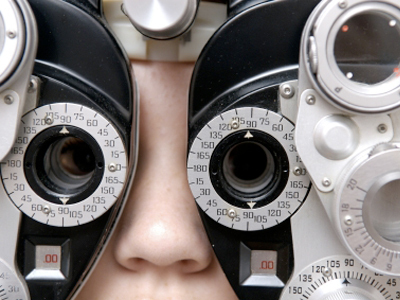In Edward Feser’s The Last Superstition he goes through the argument that some Unmoved Mover (called God) must exist, to be the cause of all perfections, must embody all perfections. In brief, in order to be the cause of some quality, the causal agent must either possess it explicitly (red paint is red and can make other things red) or have the property of being able to cause it (morphine isn’t sleepy, but it’s nature is to induce sleepiness). In the passage below, Feser is explaining why the Unmoved Mover only possesses good traits, and that’s the facet of this idea that I plan to engage with.
Does this mean the Unmoved Mover has what we would regard as negative or defective features too — blindness, disease, heroin addiction, etc., “eminently” if not “formally”? Not at all. For every such feature is what the Scholastics called a “privation,” the absense of a positive feature rather than a positive feature in its own right. Hence sight, for example, is a positive attribute, being just what an animal’s visual apparatus (comprising the eyes, optic nerves, relevant brain areas, etc.) makes possible when it is realizing its natural potentialities, that is, functioning according to its essence and final causes. But blindness is not a different positive attribute… it is the absence of sight, a failure to realize a natural potentiality.
The Unmoved Mover… cannot be meaninfully be said to have any of these features even “eminently.” In fact, since to have a positive feature or perfection is just to actualize a potentiality, and the Unmoved Mover, the source of all such features, is purely actual. He can only be said to have every perfection.
I have a couple of questions about how Feser can be so confident in divvying up the world into qualities that are perfections and those that are privations. It’s one thing to do it when the qualities are related to human reasoning or the ability to comprehend moral law. It’s another when they’re qualities of sense perception or physiological function.
As I wrote in an earlier post on cyborgs and final causes, the telos of a body part isn’t necessarily relevant to the telos of a human. It is good to hear, but it’s mostly good to hear because it lets us interact with other people and the world around us. Insofar as we can achieve that goal in other ways, the lack of hearing isn’t a very serious privation. In a world where everyone signs, lacking spoken communication isn’t a privation.
Human form is better summarized by calling us communicating beings not speaking beings. And I’m not really clear what about our physical bodies makes it clear that the final cause of being a means of communication is more clearly part of our tongue than our hands.
Which means the perfection/privation distinction seems dependent on the shape of our current bodies or the norms of our culture. But if that’s the case, many of them seem totally irrelevant to a God whose form is completely non-physical. Or, at the very least, most sense perfections just get rolled into the perfection of being omniscient. Any sense-perception we have is somehow sharing in the knowledge of God, but, owing to the limitations of their bodies, different animals and different humans share in this perfection in different ways.
So now, pointing out the kinds of differences in degree that define the privation-perfection spectrum starts to get weird. Divvying up phenomena into the senses that should perceive them is harder than it sounds. We experience different parts of the continuous electromagnetic spectrum as heat, light, and DNA damage. Why shouldn’t we be envious of bees, who can see UV light? Why shouldn’t we repeat John Cavil’s complaint?
I don’t want to be human! I want to see gamma rays! I want to hear X-rays! And I want to – I want to smell dark matter! Do you see the absurdity of what I am? I can’t even express these things properly because I have to – I have to conceptualize complex ideas in this stupid limiting spoken language! But I know I want to reach out with something other than these prehensile paws! And feel the wind of a supernova flowing over me!
The perfection of omniscience doesn’t scale down to the human frame of reference. There’s a discontinuity between the degrees of perfection humans can have and the complete perfection of the First Cause. I’m not confident our intuitions can make it across that gulf and remain accurate. We can’t imagine what a perfection of sensory perception looks like, so we reduce it to a tolerably functional body. Our best guess for what true perception looks like must resemble synesthesia on steroids, but is mostly incoherent.












